Warning: Trying to access array offset on value of type bool in /www/wwwroot/www.medtourcn.com/wp-content/themes/medical-directory/framework/theme/medicaldirectory-image.php on line 78
Warning: Trying to access array offset on value of type bool in /www/wwwroot/www.medtourcn.com/wp-content/themes/medical-directory/framework/theme/medicaldirectory-image.php on line 79
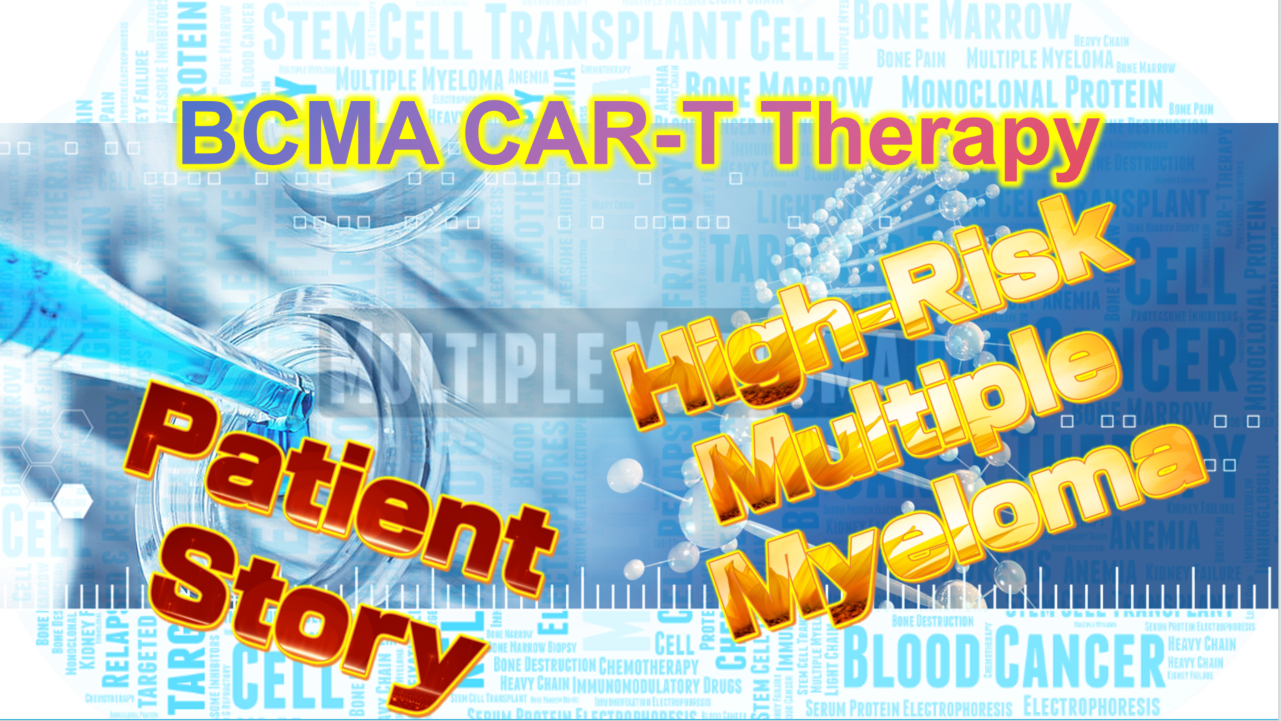
BCMA CAR-T Therapy Paves New Path for Treating High-Risk Multiple Myeloma
**BCMA CAR-T Therapy Paves New Path for Treating High-Risk Multiple Myeloma**

Multiple Myeloma
Multiple Myeloma (MM) is a malignant tumor originating from plasma cells, known for its complex biology and treatment resistance, presenting significant challenges to patients’ survival. For high-risk MM, especially in cases of relapse and refractory disease after multiple lines of therapy, treatment options become critically important. Recently, a team led by Professor Qian from a Chinese Hospital successfully treated a high-risk relapsed/refractory MM (RRMM) patient using BCMA CAR-T cell therapy, offering new hope for difficult-to-treat cases.
**Patient Overview**
The patient, a 56-year-old woman, initially sought treatment for persistent anemia and back pain. Baseline examinations revealed significant abnormalities, including a hemoglobin level of 67g/L, thrombocytopenia, and abnormal bone marrow findings. She was diagnosed with IgG-kappa type MM at stage ISS III/R-ISS III, with cytogenetic abnormalities and high-risk factors such as t(14;16) and 1q21 amplification. The disease rapidly progressed despite multiple lines of therapy, including VRd and DVD regimens, with external manifestations of extramedullary disease (EMD), indicating a poor prognosis.
**Treatment Journey**
The patient initially underwent VRd induction therapy, followed by DVD treatment when the disease progressed. Despite efforts, she developed multiple extramedullary lesions, leading to the use of the Dara+DECP regimen and autologous stem cell transplantation (ASCT). While these treatments provided partial remission, the disease relapsed within months, with extramedullary involvement further complicating the prognosis.
Given the poor prognosis and lack of effective treatments for EMD in MM, the decision was made to pursue BCMA CAR-T cell therapy, specifically with **Equecabtagene Autoleucel**, China’s first CAR-T product for treating MM. This therapy has demonstrated an impressive overall response rate (ORR) of 100% in patients with extramedullary disease, with a complete remission (CR) rate of 78.6%.
**CAR-T Therapy and Outcomes**
Following preconditioning with FC regimen, the patient underwent BCMA CAR-T therapy. After CAR-T infusion, the patient experienced mild cytokine release syndrome (CRS), which was successfully managed with supportive care. Over the course of three months, significant clinical improvements were observed. PET-CT scans showed no residual disease, and bone marrow biopsies were negative for clonal plasma cells. The patient achieved stringent complete remission (sCR).
Eight months after CAR-T therapy, follow-up results continue to show no evidence of disease, with the patient maintaining CR. This case highlights the long-lasting anti-tumor effects of Equecabtagene Autoleucel, a fully human BCMA CAR-T product, which offers low immunogenicity and sustained CAR-T cell persistence in vivo.
**Implications for Future Treatment**
This success story offers new hope for patients with high-risk and refractory MM, especially those with extramedullary involvement. It also provides valuable clinical insights into the use of BCMA CAR-T therapy as a promising treatment strategy. The case demonstrates that for patients with high-risk MM, comprehensive risk assessment considering genetic characteristics, treatment responses, and future treatment plans is essential for personalized care.
In conclusion, the application of Equecabtagene Autoleucel CAR-T therapy represents a significant breakthrough in the treatment of high-risk, refractory MM, particularly in cases involving extramedullary disease. This innovative approach not only extends survival but also enhances the quality of life for patients who have exhausted other treatment options, marking a new chapter in the fight against multiple myeloma.
🎉🎉To assess whether the condition is suitable for clinic therapy, you can submit Advanced Medicine in China for preliminary evaluation!
WhatsApp: +8613717959070
Https://wa.me/+8613717959070
Email: doctor.huang@globecancer.com
#MultipleMyeloma #CAR_Therapy #BCMA #CancerTreatment #InnovativeMedicine #Immunotherapy #ExtramedullaryDisease #RelapsedMM #ChinaHealthcare #GlobalHealth
Warning: Trying to access array offset on value of type bool in /www/wwwroot/www.medtourcn.com/wp-content/themes/medical-directory/framework/theme/medicaldirectory-image.php on line 78
Warning: Trying to access array offset on value of type bool in /www/wwwroot/www.medtourcn.com/wp-content/themes/medical-directory/framework/theme/medicaldirectory-image.php on line 79
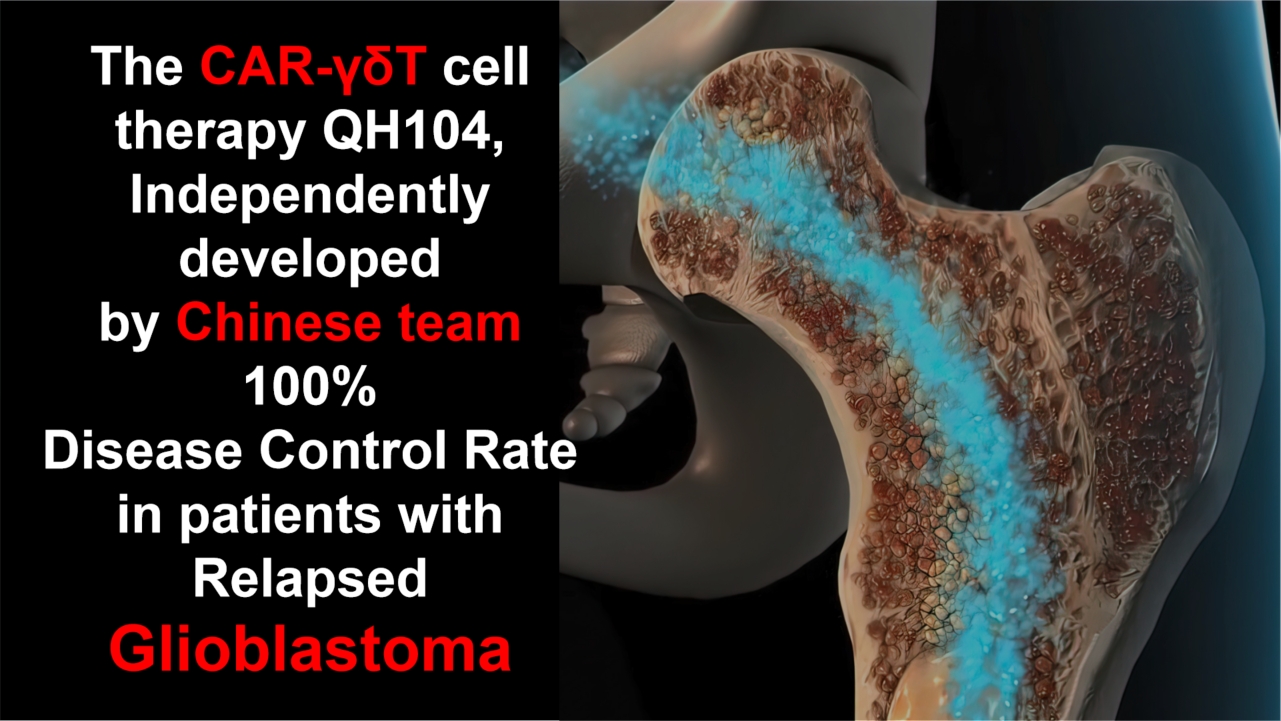
The CAR-γδT cell therapy QH104, independently developed by a Chinese team, has demonstrated a 100% disease control rate in patients with relapsed glioblastoma
**The CAR-γδT cell therapy QH104, independently developed by a Chinese team, has demonstrated a 100% disease control rate in patients with relapsed glioblastoma.**
#glioblastoma #CARγδT #QH104 #γδT #B7H3 #rGBM #CARgammaT

glioblastoma
A groundbreaking CAR-γδT cell therapy, QH104, developed by a Chinese team, is gaining attention in the global medical community for its potential in treating relapsed glioblastoma (rGBM). Targeting B7H3, QH104 is an allogeneic, off-the-shelf therapy with the promise of higher accessibility due to lower production costs compared to autologous cell therapies.
One of the unique strengths of γδT cells is their ability to recognize antigens without MHC restriction, reducing the risk of graft-versus-host disease (GvHD) and making them an ideal candidate for universal cell therapy.
The Phase I clinical trial, a single-center, dose-escalation study, tested QH104 on B7H3-positive rGBM patients who had already completed standard treatments. These patients had a Karnofsky Performance Status (KPS) score of 60 or higher and a minimum life expectancy of three months. The trial followed a “3+3” dose escalation model, with patients receiving intrathecal injections of QH104 once per month.
As of March 30, 2024, seven high-grade rGBM patients (five males, two females, median age 60) had undergone at least one dose of QH104 and were monitored for an average of 6.5 months. The therapy showed an excellent safety profile, with no dose-limiting toxicities. Although minor side effects like fever and headaches were observed, no severe cases of cytokine release syndrome (CRS), immune effector cell-associated neurotoxicity syndrome (ICANS), or GvHD occurred. Importantly, QH104 exhibited remarkable efficacy, with an objective response rate (ORR) of 42.9% and a disease control rate (DCR) of 100%, ensuring that all patients saw some level of disease stabilization.
Even more encouraging, 30 days post-treatment, the infused cells were still detectable in patients, indicating the therapy’s persistence. Additionally, a positive correlation between B7H3 expression and clinical outcomes suggests that QH104 could be further personalized to optimize patient selection and treatment protocols in the future.
This pioneering approach marks a significant step forward in CAR-γδT therapy, offering hope for patients with relapsed glioblastoma.
To assess whether the condition is suitable for clinic therapy, you can submit Advanced Medicine in China for preliminary evaluation!
WhatsApp: +8613717959070
Https://wa.me/+8613717959070
Email: doctor.huang@globecancer.com
#CancerTreatment #Immunotherapy #MedicalBreakthrough #CellTherapy #HealthcareInnovation
Warning: Trying to access array offset on value of type bool in /www/wwwroot/www.medtourcn.com/wp-content/themes/medical-directory/framework/theme/medicaldirectory-image.php on line 78
Warning: Trying to access array offset on value of type bool in /www/wwwroot/www.medtourcn.com/wp-content/themes/medical-directory/framework/theme/medicaldirectory-image.php on line 79
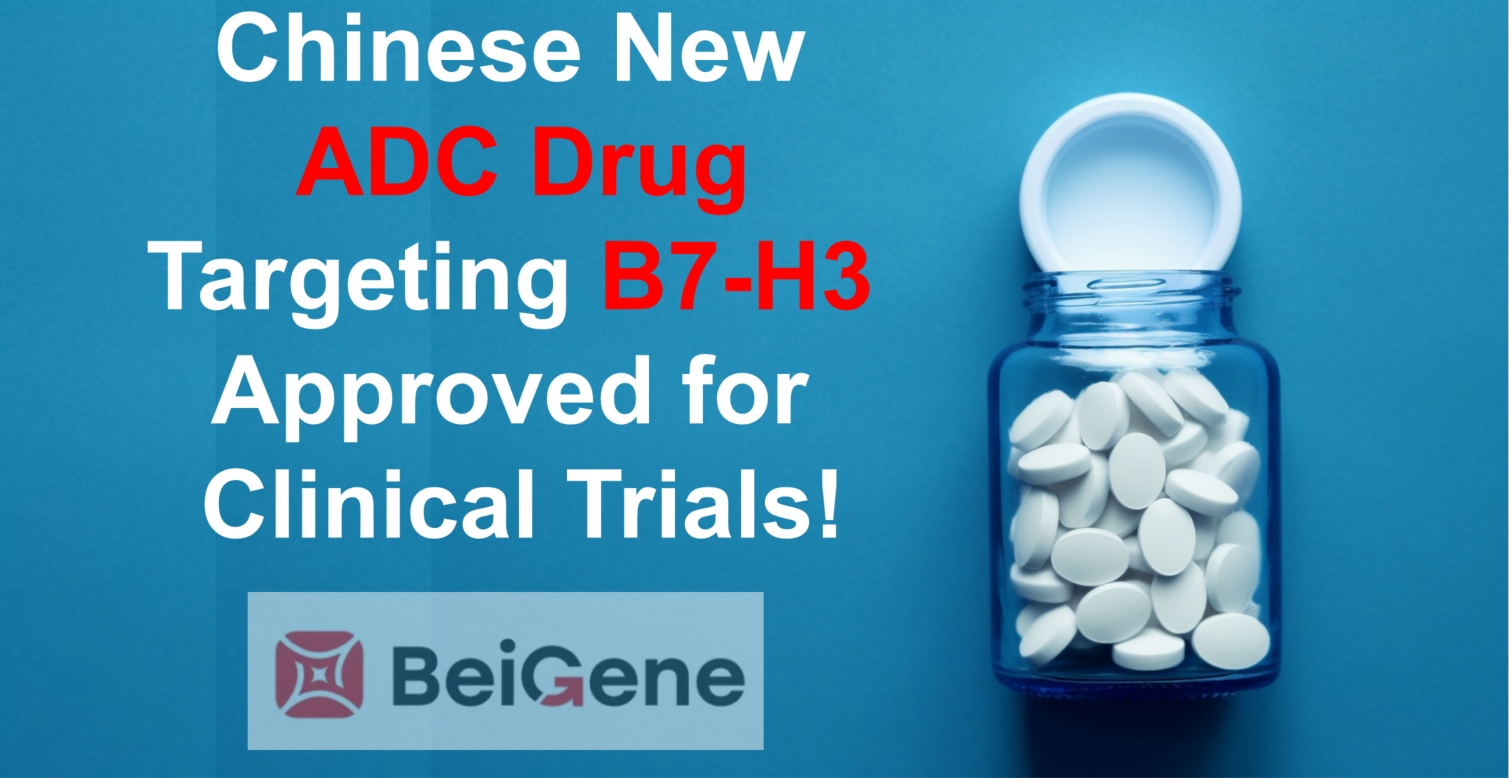
Chinese ADC Drug Targeting B7-H3 Approved for Clinical Trials!
Chinese ADC Drug Targeting B7-H3 Approved for Clinical Trials!

ADC
#ADC #Immunotherapy#B7H3 #LungCancer #HeadAndNeckCancer #ADCDrug
On September 20, the China National Medical Products Administration (NMPA) approved BeiGene’s innovative anti-cancer drug, BGB-C354, for clinical trials. This exciting news marks the first approval for clinical research of this novel molecule in China. BGB-C354 is an Antibody-Drug Conjugate (ADC) specifically designed to target B7-H3, a protein often overexpressed in various cancers such as lung cancer, prostate cancer, breast cancer, and squamous cell carcinoma of the head and neck.
BGB-C354 holds significant promise for treating patients with advanced solid tumors, particularly lung cancer and head and neck squamous cell carcinoma (HNSCC). B7-H3 has gained attention as a key anti-cancer target, with its high expression often linked to poor prognosis. By leveraging the power of ADC technology, BGB-C354 aims to selectively deliver potent anti-cancer drugs directly to tumor cells, minimizing damage to healthy cells.
BeiGene has already initiated a Phase 1 clinical trial in the US and Australia, evaluating the safety, tolerability, and preliminary anti-tumor activity of BGB-C354 as a monotherapy and in combination with anti-PD-1 antibody, Tislelizumab. This recent approval sets the stage for the commencement of clinical trials in China.
Globally, B7-H3-targeted therapies are advancing rapidly. Companies like Daiichi Sankyo, Merck, and GSK are pushing the boundaries with their ADCs, entering Phase 2 and 3 clinical trials. The approval of BGB-C354 marks a significant step in advancing cancer treatment options in China, offering new hope for patients with difficult-to-treat cancers.
To assess whether the condition is suitable for clinic therapy, you can submit Advanced Medicine in China for preliminary evaluation!
WhatsApp: +8613717959070
Https://wa.me/+8613717959070
Email: doctor.huang@globecancer.com
#CancerTreatment #ClinicalTrials #BeiGene #OncologyBreakthrough #PharmaInnovation #CancerResearch
Warning: Trying to access array offset on value of type bool in /www/wwwroot/www.medtourcn.com/wp-content/themes/medical-directory/framework/theme/medicaldirectory-image.php on line 78
Warning: Trying to access array offset on value of type bool in /www/wwwroot/www.medtourcn.com/wp-content/themes/medical-directory/framework/theme/medicaldirectory-image.php on line 79
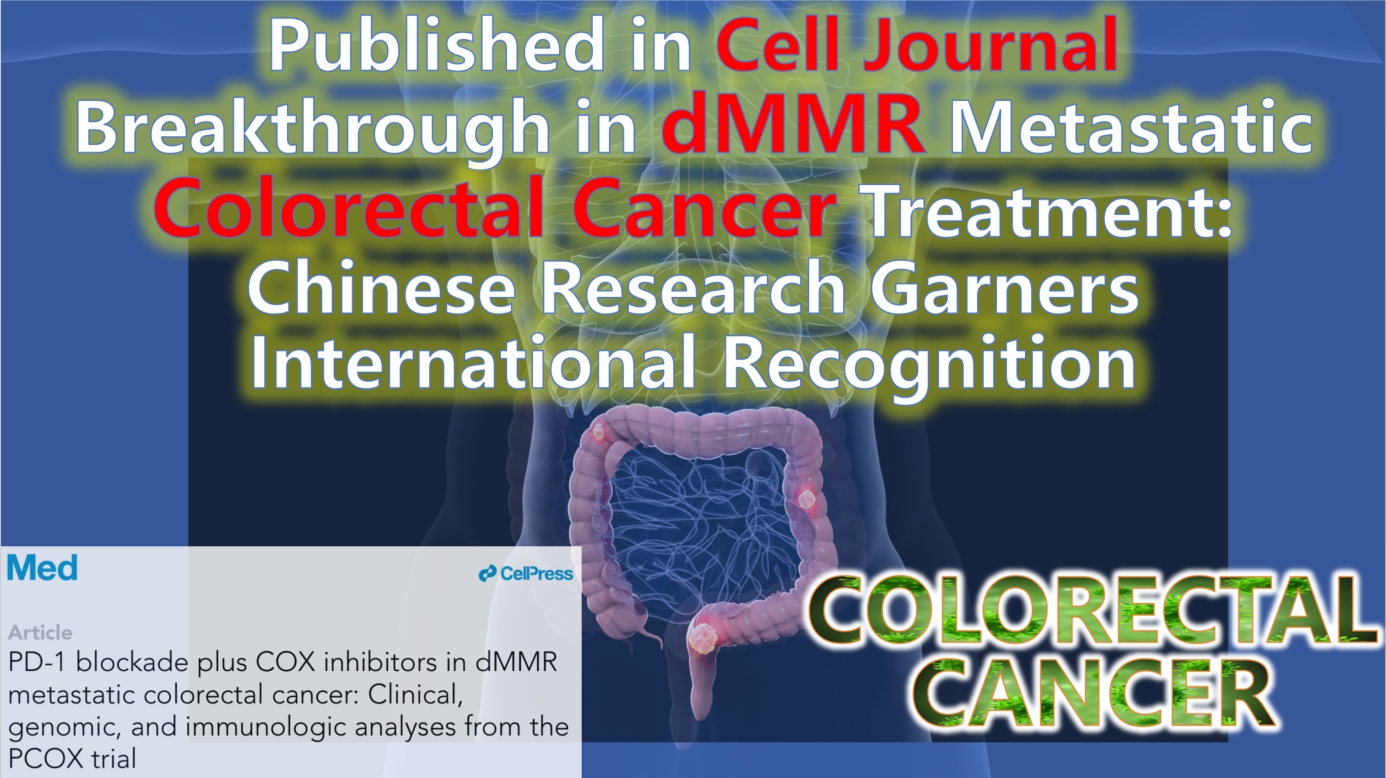
Published in Cell Journal | Breakthrough in dMMR Metastatic Colorectal Cancer Treatment: Chinese Research Garners International Recognition
**Published in Cell Journal | Breakthrough in dMMR Metastatic Colorectal Cancer Treatment: Chinese Research Garners International Recognition**

Colorectal Cancer
#ColorectalCancer #PD1Antibody #dMMR #cell #cellpress #Med #PD-1 #CellJournal
A Chinese medical team has made a significant breakthrough in the treatment of dMMR (deficient mismatch repair) metastatic colorectal cancer. Recently, their latest research findings were published in the *Med* journal, a subsidiary of *Cell*, offering new treatment hope for patients with advanced colorectal cancer.
The study revealed that the combination of PD-1 antibody immunotherapy with COX inhibitors, drugs commonly used for anti-inflammatory treatment, significantly improved treatment effectiveness. This innovative strategy could substantially increase survival chances for patients with advanced colorectal cancer.
Colorectal cancer is the second most common cancer in China, and its incidence is on the rise. While PD-1 antibody immunotherapy has brought hope to some patients, its success rate is only 45%. Approximately 30% of dMMR metastatic colorectal cancer patients are resistant to PD-1 treatment. Therefore, the Chinese team explored combining PD-1 immunotherapy with COX inhibitors (such as celecoxib and aspirin) to overcome this resistance.
The team’s Phase 2 clinical trial yielded remarkable results. Among the 30 patients who received the combination therapy, the overall response rate was 73.3%, a 30% improvement over PD-1 monotherapy. After more than four years of follow-up, 65% of patients achieved progression-free survival, and 90% were still alive. Four patients reached complete remission, while 11 others underwent surgery, with 10 showing complete pathological remission.
In addition to the notable clinical outcomes, genomic and immunological analysis revealed that high expression of the TAPBP protein was associated with better treatment results. This discovery opens new avenues for the development of biomarkers to predict treatment response and for personalized treatment plans in the future.
Following the publication of the study, it attracted significant attention from the international medical community. Experts from Memorial Sloan Kettering Cancer Center in the U.S. wrote a commentary in the *Med* journal, highly praising the innovative therapy. They noted that the combination of COX inhibitors with PD-1 treatment not only increased the complete remission rate but also reduced immune suppression signals in the tumor microenvironment, enhancing the effectiveness of PD-1 therapy, with manageable side effects.
This research offers new hope for dMMR metastatic colorectal cancer patients worldwide, and further large-scale clinical trials are expected to confirm its efficacy. The combination of COX inhibitors with PD-1 immunotherapy could become a safe and effective treatment option for dMMR metastatic colorectal cancer patients, providing hope for long-term survival.
🎉🎉To assess whether the condition is suitable for CAR-T or clinic therapy, you can submit Advanced Medicine in China for preliminary evaluation!
WhatsApp: +8613717959070
(Https://wa.me/+8613717959070)
Email: doctor.huang@globecancer.com
#CancerResearch #MedicalInnovation #GlobalHealth #Immunotherapy #Colorectal #COXInhibitors
Warning: Trying to access array offset on value of type bool in /www/wwwroot/www.medtourcn.com/wp-content/themes/medical-directory/framework/theme/medicaldirectory-image.php on line 78
Warning: Trying to access array offset on value of type bool in /www/wwwroot/www.medtourcn.com/wp-content/themes/medical-directory/framework/theme/medicaldirectory-image.php on line 79

Expert Perspective: Side Effects and Management of CAR-T Therapy for a Thai Patient
**Expert Perspective: Side Effects and Management of CAR-T Therapy for a Thai Patient**
At the Hematology Department of Shanghai Tongji Hospital, Dr. Li Ping, the chief physician for the elderly Thai patient Ms. P, provided a detailed overview of the patient’s multiple myeloma condition and treatment journey. After experiencing multiple treatments and relapses in Thailand, the patient ultimately chose and trusted CAR-T therapy in China. Dr. Li highlighted that the most common side effect is cytokine release syndrome (CRS), which manifests as fever, hypotension, and difficulty breathing. While most CRS cases are mild to moderate, severe CRS can be life-threatening. She also emphasized that through scientific management, the team’s extensive experience, and the low immunogenicity of the fully human CAR-T product FUCASO, the side effects of CAR-T therapy can be effectively controlled, offering the patient hope for a cure.
We will continue to follow up on this patient’s treatment progress and provide updates.
#CARTherapy #MultipleMyeloma #FUCASO #Equecel #TongjiHospital #Shanghai #MedicalInnovation #CancerTreatment #Hematology #PatientJourney #Immunotherapy
Warning: Trying to access array offset on value of type bool in /www/wwwroot/www.medtourcn.com/wp-content/themes/medical-directory/framework/theme/medicaldirectory-image.php on line 78
Warning: Trying to access array offset on value of type bool in /www/wwwroot/www.medtourcn.com/wp-content/themes/medical-directory/framework/theme/medicaldirectory-image.php on line 79

2024EHA | Professor Huang He: Targeting CD7 Universal CAR-T Therapy Shows Significant Efficacy and Good Safety in Treating R/R CD7+ T-ALL/LBL Patients
**2024EHA | Professor Huang He: Targeting CD7 Universal CAR-T Therapy Shows Significant Efficacy and Good Safety in Treating R/R CD7+ T-ALL/LBL Patients**
The 29th Annual Meeting of the European Hematology Association (EHA) 2024 concluded successfully on June 16, 2024, in Madrid, Spain. As a premier event in the international hematology field, it showcased the latest advancements in foundational and clinical practices.
At this year’s EHA meeting, several studies from Professor Huang He’s team at the First Affiliated Hospital, Zhejiang University School of Medicine were selected. One of these studies, titled “Phase I Study of Targeting CD7 Universal CAR-T Therapy for Relapsed/Refractory CD7+ T-ALL/LBL Patients,” was featured in a poster presentation.
T-cell acute lymphoblastic leukemia (T-ALL) and T-cell lymphoblastic lymphoma (T-LBL) are aggressive malignancies originating from precursor T cells, often affecting the bone marrow (BM), central nervous system (CNS), and mediastinum. Despite multiple lines of chemotherapy or allogeneic hematopoietic stem cell transplantation, some patients progress to a relapsed/refractory stage with poor prognosis, posing a significant clinical challenge. Current CAR-T cell therapies primarily target B-cell hematologic malignancies and multiple myeloma, such as CD19 CAR-T and BCMA CAR-T, while mature targets for T-cell hematologic malignancies are lacking. Preliminary research data indicate that CD7 could be a potential therapeutic target for T-cell hematologic malignancies. Based on this, the team developed a universal CAR-T product targeting CD7, named RD13-02, characterized by CRISPR/Cas9 technology to modify T-cell receptors (TCR) and CD7, creating an innovative “off-the-shelf” CAR-T cell therapy product aimed at truly achieving shelf-ready cell therapy.
The objective of this study was to evaluate the safety and efficacy of RD13-02 in treating R/R T-ALL/LBL. A total of 12 eligible R/R T-ALL/LBL patients (7 ALL, 5 LBL) were enrolled in the study, all exhibiting CD7 antigen expression. Six patients had extramedullary disease; all had blast cells in the bone marrow, with a median proportion of 64% (range: 6% to 89%), indicating high-risk end-stage patients. The patients, aged 3 to 70 years, were enrolled in a “3+3” dose-escalation study. Based on the total dose of RD13-02, they were randomly divided into four dosage groups (DL-1: 0.5×10^8 CAR+T cells; DL1: 2×10^8 CAR+T cells; DL2: 4×10^8 CAR+T cells; DL3: 6×10^8 CAR+T cells). All patients received a standardized lymphodepletion regimen of fludarabine (30mg/m2/day) and cyclophosphamide (500mg/m2/day) for three consecutive days (Day -5 to Day -3) before CAR-T infusion. Preliminary disease assessment was conducted on Day 28. After determining the MTD and RP2D, dose expansion will be carried out.
The study results indicated that no dose-limiting toxicity (DLT), immune effector cell-associated neurotoxicity syndrome (ICANS), or graft-versus-host disease (GVHD) was observed at any dose level. Cytokine release syndrome (CRS) was manageable, mostly mild (G1, n=8; G2, n=2; G3, n=2). Due to the occurrence of Grade 3 CRS in one patient each in the DL2 and DL3 groups, the DL1 dose was set as RP2D, focusing on safety and efficacy. In the initial 28-day evaluation post-infusion, 9 out of 12 patients achieved CR/CRi. By the second month post-infusion, an additional 2 patients achieved CR/CRi, with an ORR of 92%. All patients showed expansion observed through qPCR, with the expansion occurring between Days 6 to 15 and peaking between Days 8 to 27, with a median duration of 33 days (15-79). The study preliminarily confirmed that the anti-CD7 universal CAR-T product RD13-02 is safe and effective for CD7+ R/R T-ALL/LBL. Long-term efficacy needs more patients and extended follow-up for validation. To date, this study has shown the best clinical results for universal CAR-T therapy for R/R T-ALL/LBL, attracting widespread attention from peers both domestically and internationally at this EHA meeting. Additionally, the Bone Marrow Transplantation Center at the First Affiliated Hospital, Zhejiang University School of Medicine is developing multiple targeted CAR-T cell therapy products for various hematologic malignancies, including B-cell, T-cell, and myeloid malignancies.
**Current Clinical Treatment of T-ALL/LBL**
The treatment of T-ALL/LBL remains a significant clinical challenge. Current strategies involve achieving remission with existing frontline therapies followed by sequential allogeneic or autologous hematopoietic stem cell transplantation, with most patients achieving long-term survival. However, some patients face refractory or relapsed disease with poor prognosis. For these patients, clinical studies of new drugs or treatment strategies, such as innovative drugs based on disease targets and pathways, are actively being conducted but have not achieved significant progress. CAR-T cell therapy, with its excellent efficacy and safety, is currently the most promising innovative therapy. It is hoped that with further research, CAR-T cell therapy can bring more survival benefits to T-ALL/LBL patients.
**Challenges and Strategies in CAR-T Cell Therapy**
Cellular immunotherapy has been a milestone in the medical field over the past decade, showing breakthrough efficacy in hematologic malignancies, but it still faces several challenges that need to be addressed.
First, the discovery of new targets. Current mature CAR-T cell therapy products mainly focus on B-cell hematologic malignancies, and new targets are urgently needed for T-cell, myeloid, and solid tumors.
Second, improving efficacy. Existing CAR-T cell therapy for B-cell hematologic malignancies has an efficacy rate of about 50%, and continuous technological improvements are expected to develop more effective cell therapy products for clinical application.
Third, existing CAR-T products are autologous CAR-T, which are costly and have long treatment cycles, necessitating the development of universal CAR-T to improve patient compliance.
The team’s novel cell therapy research, including the study selected for this EHA meeting, addresses these clinical challenges. Additionally, last year, the team published results on “function-enhanced” CAR-T in the journal *Nature*, using PD-1 site-specific integration and non-viral delivery methods to successfully prepare CAR-T cells, significantly enhancing their therapeutic effects.
Furthermore, managing CAR-T cell therapy complications, such as ICANS and CRS, requires in-depth exploration. Progress has been made in understanding the mechanisms of complications, leading to gene functionalization of CAR-T cells and developing “smart” CAR-T products to achieve “efficacy enhancement and toxicity reduction.” Additionally, exploring CAR-T combinations with small molecule targeted drugs and immunotherapeutic drugs could achieve better efficacy. The team recently published in the *New England Journal of Medicine* on the sequential “integrated” regimen of CD7 CAR-T cell therapy and allogeneic hematopoietic stem cell transplantation (HSCT), showing excellent efficacy in relapsed/refractory hematologic malignancies.
**Future Prospects of Cellular Therapy**
It is well known that hematology has always been at the forefront of medical development, including the application of the first small molecule targeted drugs and the first antibodies. The remarkable efficacy of cellular therapy in hematologic diseases has demonstrated its great potential in clinical practice. In the future, it is believed that with the development and commercialization of more novel cellular immunotherapy products, their efficacy will continue to improve, side effects will gradually decrease, and indications will expand.
In the field of hematologic diseases, in addition to traditional chemotherapy, small molecule targeted drugs, antibody drugs, and hematopoietic stem cell transplantation, cellular therapy has improved the clinical treatment landscape of hematologic diseases and holds a significant position. It is anticipated that in the future, the treatment of hematologic diseases may enter a chemotherapy-free era, bringing higher cure rates and better quality of life for patients.
🎉🎉To assess whether the condition is suitable for CAR-T or clinic therapy, you can submit Advanced Medicine in China for preliminary evaluation!
WhatsApp: +8613717959070
Email: doctor.huang@globecancer.com
#CAR_T #TALL #LBL #EHA2024 #Immunotherapy #Hematology #CancerResearch #CD7 #CellTherapy #MedicalAdvancements
Warning: Trying to access array offset on value of type bool in /www/wwwroot/www.medtourcn.com/wp-content/themes/medical-directory/framework/theme/medicaldirectory-image.php on line 78
Warning: Trying to access array offset on value of type bool in /www/wwwroot/www.medtourcn.com/wp-content/themes/medical-directory/framework/theme/medicaldirectory-image.php on line 79
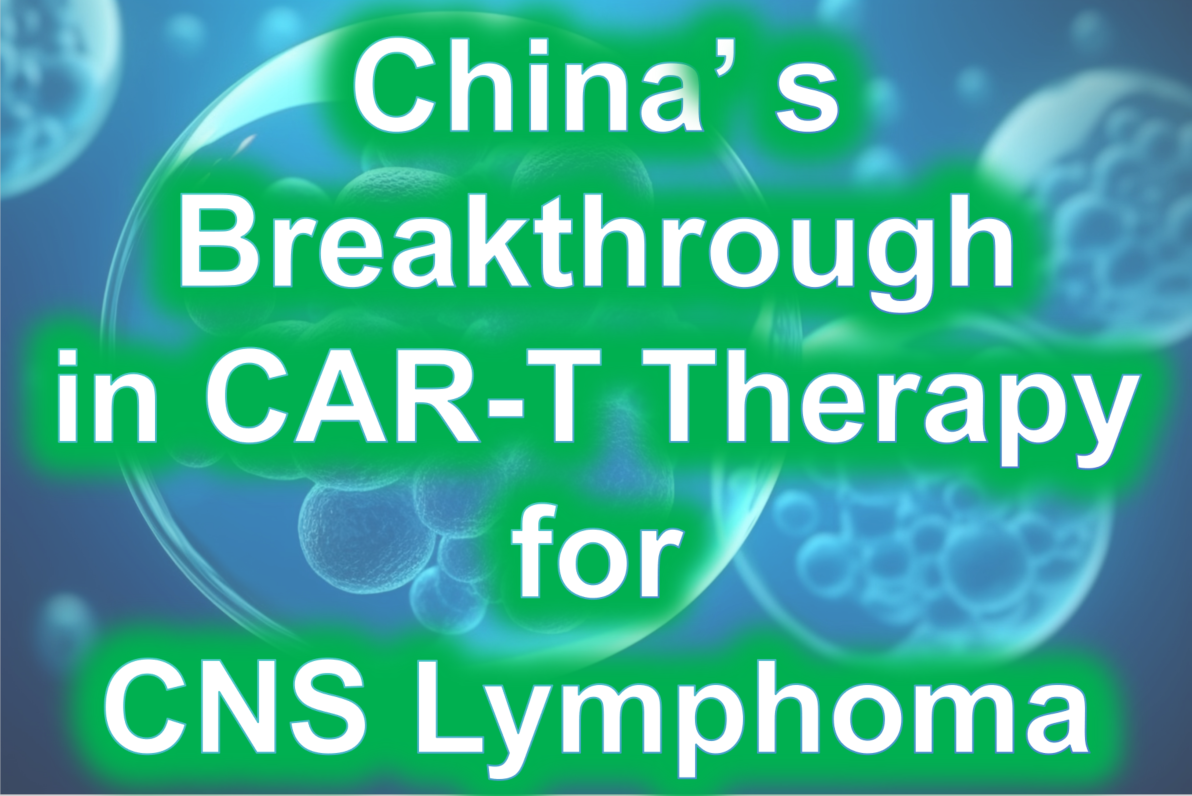
China’s Breakthrough in CAR-T Therapy for CNS Lymphoma
### China’s Breakthrough in CAR-T Therapy for CNS Lymphoma
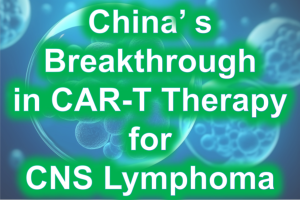
Lymphoma
In a pioneering effort to improve outcomes for patients with refractory/relapsed central nervous system lymphoma (CNSL), a multi-center retrospective study led by Professor Jianqing Mi from Ruijin Hospital, Shanghai Jiaotong University School of Medicine, has showcased the impressive real-world effectiveness of Relmacabtagene Autoleucel (Relma-cel). This study, encompassing data from 12 centers across China, represents the largest sample size for a real-world study on commercial CAR-T therapy in treating CNSL, and its results have been recently published in the *Journal for ImmunoTherapy of Cancer*.
### Study Overview and Patient Demographics
The study included 22 patients aged 18 and above, all diagnosed with CD19+ refractory or relapsed CNSL. These patients had previously undergone various systemic treatments, including CD20 monoclonal antibody immunochemotherapy and high-dose methotrexate-based therapies. Of the participants, 12 had primary CNSL and 10 had secondary CNSL. The median age was 56, with 45.5% being over 60 years old. The study focused on a high-risk group, with many having a Karnofsky Performance Status (KPS) score of ≤60, multiple prior treatment lines, and/or high-risk genetic profiles such as double-hit lymphoma (DHL).
### Treatment and Response
Patients received Relma-cel with a median interval of 32 days between apheresis and infusion. Thirteen patients received a single CAR-T cell infusion, while nine underwent autologous stem cell transplantation (ASCT) in combination with CAR-T infusion. Notably, 20 patients received bridging therapy to control disease before CAR-T infusion. The overall response rate (ORR) was 90.9%, with a complete response (CR) rate of 68.2%. Impressively, all patients achieved CNS response, with 72.7% achieving CNS CR. The median time to response was one month.
### Follow-Up and Survival Outcomes
The median follow-up period was 316 days. Among the 16 patients who achieved CNS response, 81.3% remained alive and in remission, with half maintaining CNS CR for over a year. The study reported a one-year progression-free survival (PFS) rate of 64.4%, duration of response (DOR) rate of 71.5%, and overall survival (OS) rate of 79.2%. Key predictors of better outcomes included achieving CR before infusion and having non-progressive disease at the time of infusion.
### Safety and Tolerability
The safety profile of Relma-cel was acceptable. Cytokine release syndrome (CRS) occurred in 72.7% of patients, primarily grade 1 or 2, with only one case of grade 3. Immune effector cell-associated neurotoxicity syndrome (ICANS) was reported in 36.4% of patients, mostly grade 1 or 2. There were no CAR-T therapy-related deaths, although five patients (22.7%) died, with three deaths due to disease progression and two from non-relapse causes (COVID-19).
### CAR-T Cell Dynamics and Combined Therapy
The study also explored the pharmacokinetics of CAR-T cells. Relma-cel showed significant expansion in the peripheral blood within the first 28 days post-infusion, with CAR-T cells detected in the cerebrospinal fluid of all evaluable patients. Interestingly, patients receiving additional immunotherapies like BTK inhibitors or PD-1 inhibitors exhibited CAR-T cell re-expansion, suggesting potential synergistic effects.
### Conclusion and Future Directions
This landmark study underscores the clinical efficacy and manageable safety profile of Relma-cel for treating CNSL in a real-world setting. It highlights the potential benefits of combining CAR-T therapy with other immunotherapies, offering a promising strategy for enhancing CAR-T cell persistence and effectiveness. These findings pave the way for future research, suggesting the need for larger, randomized studies to further validate these results and explore the role of CAR-T therapy as a consolidation treatment for high-risk CNSL patients. As China continues to advance in medical research and technology, studies like this are crucial in providing valuable insights and improving global healthcare standards.
🎉🎉To assess whether the condition is suitable for CAR-T or clinic therapy, you can submit Advanced Medicine in China for preliminary evaluation!
WhatsApp: +8613717959070
Email: doctor.huang@globecancer.com
#CARTTherapy #CNSLymphoma #CancerResearch #MedicalBreakthrough #ChinaHealthcare #Immunotherapy #RelmaCel #PatientOutcomes #InnovativeTreatment #ClinicalStudy
Warning: Trying to access array offset on value of type bool in /www/wwwroot/www.medtourcn.com/wp-content/themes/medical-directory/framework/theme/medicaldirectory-image.php on line 78
Warning: Trying to access array offset on value of type bool in /www/wwwroot/www.medtourcn.com/wp-content/themes/medical-directory/framework/theme/medicaldirectory-image.php on line 79
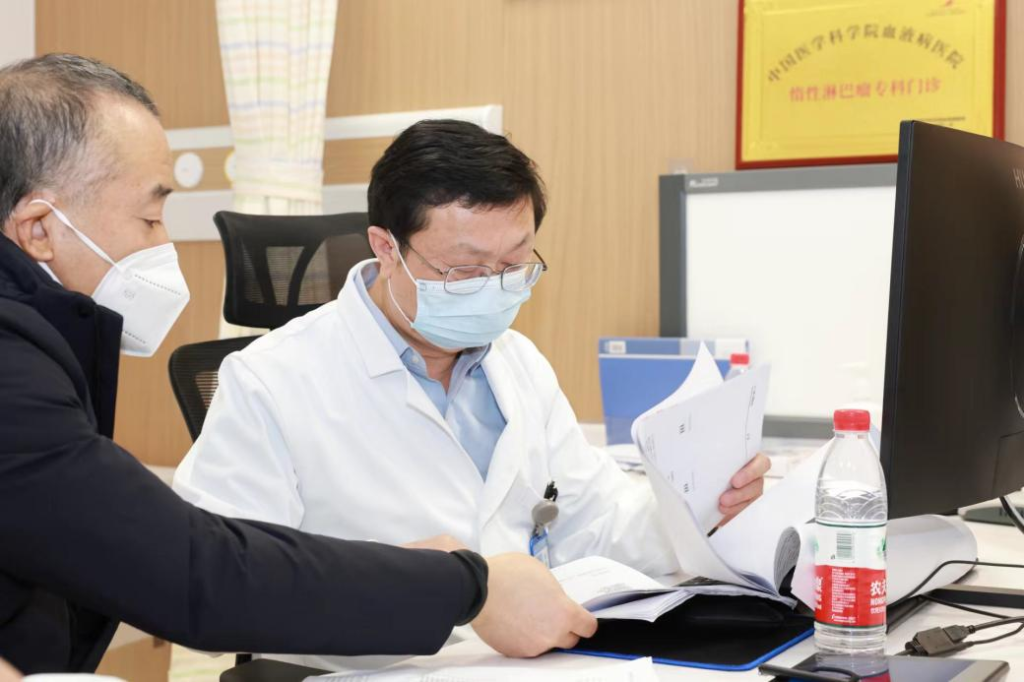
One Year After Approval: How Effective is China’s First BCMA-Targeted CAR-T Therapy in Treating Multiple Myeloma?
### One Year After Approval: How Effective is China’s First BCMA-Targeted CAR-T Therapy in Treating Multiple Myeloma?

Multiple Myeloma
“In the past 20 years, the treatment of multiple myeloma has advanced rapidly, thanks in large part to the swift progress in drug development. Over the past year, China’s first independently developed and the world’s first fully human BCMA-targeted chimeric antigen receptor T-cell (CAR-T) therapy was approved. In our real-world clinical applications, we have treated over 20 patients with an overall effectiveness rate of nearly 100%.”
On June 30, 2024, exactly one year after the approval of China’s first BCMA-targeted CAR-T therapy (Iquilonsen Injection), and also the world’s first fully human BCMA-targeted CAR-T therapy, how effective has the treatment been for patients? Professor Qiu Lugui, Director of the Lymphoma Treatment Center at the Chinese Academy of Medical Sciences Hematology Hospital, was interviewed by the People’s Daily Health Client.
“Multiple myeloma has a slow onset and early stages often show no obvious symptoms, making it easy to misdiagnose. To date, once diagnosed, the vast majority of patients experience one or more relapses, entering a refractory state, which is an incurable disease,” Professor Qiu Lugui told the People’s Daily Health Client.
Professor Qiu explained that current drugs for treating multiple myeloma fall into three categories: immunomodulators, proteasome inhibitors, and CD38 monoclonal antibodies. The indications for these drugs have gradually moved from refractory cases to frontline treatments, transforming multiple myeloma from a deadly disease with a median survival of around three years to a relatively controllable malignant hematological tumor with a median survival of 10 years or more after systematic multi-drug therapy.
CAR-T cell therapy is a cutting-edge technology for treating malignant hematological tumors. China’s independently developed fully human BCMA-targeted CAR-T drug (Iquilonsen Injection) is designed for multiple myeloma patients who have relapsed or whose disease remains uncontrolled despite traditional treatments including proteasome inhibitors and immunomodulators.
One particularly memorable case for Professor Qiu was a 70-year-old patient. “At that time, the patient was extremely weak and had already undergone all available treatments, including two types of immunomodulators, two types of proteasome inhibitors, CD38 monoclonal antibodies, and intensive chemotherapy, with no other effective options left,” recalled Professor Qiu. “However, the patient had a strong desire to live. Seeing his eager eyes, we couldn’t remain indifferent.”
“After confirming with the patient, we decided to proceed with the fully human BCMA-targeted CAR-T Iquilonsen therapy. One month after the treatment, the first evaluation showed complete remission. To date, the patient remains in complete remission,” said Professor Qiu.
“In real-world applications, we have treated over 20 patients with an overall effectiveness rate approaching 100%. However, due to the high cost of the drug and the fact that it is not covered by medical insurance, making the drug accessible remains a challenge,” Professor Qiu told the People’s Daily Health Client. “Currently, there are two methods to address this issue: one is to meet the needs of economically disadvantaged patients through commercial insurance; the other is to meet the needs of patients who meet the criteria for inclusion in CAR-T clinical research.”
“Additionally, in the year since the approval of China’s first CAR-T therapy for treating multiple myeloma, not only domestic patients but also patients from Europe, Asia-Pacific, Africa, and other regions have come to China for CAR-T treatment. Overall treatment driven by dynamic prognostic stratification will be the future path to cure for multiple myeloma patients both in China and globally,” said Professor Qiu.
#MultipleMyeloma #CARTTherapy #CancerTreatment #MedicalBreakthrough #BCMATargeted #ChinaHealthcare #InnovativeMedicine #PatientSuccess #GlobalHealth #Hematology #Immunotherapy
Warning: Trying to access array offset on value of type bool in /www/wwwroot/www.medtourcn.com/wp-content/themes/medical-directory/framework/theme/medicaldirectory-image.php on line 78
Warning: Trying to access array offset on value of type bool in /www/wwwroot/www.medtourcn.com/wp-content/themes/medical-directory/framework/theme/medicaldirectory-image.php on line 79

Ключевой этап точечного лечения: Подробное объяснение афереза CAR-T для российского пациента в Шанхайской Международной больнице Жияхуи
Ключевой этап точечного лечения:
Подробное объяснение афереза CAR-T для российского пациента в Шанхайской Международной больнице Жияхуи
Владимир Борзенков, 68-летний пациент из Санкт-Петербурга, в последнее время прошел важный этап лечения CAR-T в Международной больнице Жияхуи в Шанхае – аферез. Этот процесс включает в себя сбор Т-клеток из организма пациента для дальнейшей генетической модификации и увеличения. Владимир выразил благодарность профессионализму лечебной команды и прозрачности лечебного процесса, что не только сняло его беспокойство, но и увеличило уверенность в успехе лечения. Больница Жияхуи использовала свои передовые устройства и технологии, чтобы обеспечить Владимиру плавный и эффективный опыт афереза, гарантируя высококачественный сбор Т-клеток и заложив прочный фундамент для следующих этапов лечения.
#CART #МножественнаяМиелома #ОдобрениеФУКАСО #Эквесел #БольницаЖияхуи #Шанхай #ВыжившийОтРака #КровяноеРак #Иммунотерапия #ПолностьюЧеловеческийCART
#CART #MultipleMyeloma #FUCASOapproval #Equecel #JiahuiHospital #Shanghai #CancerSurvivor #bloodcancer #Immunotherapy #FullyHumanCART
Warning: Trying to access array offset on value of type bool in /www/wwwroot/www.medtourcn.com/wp-content/themes/medical-directory/framework/theme/medicaldirectory-image.php on line 78
Warning: Trying to access array offset on value of type bool in /www/wwwroot/www.medtourcn.com/wp-content/themes/medical-directory/framework/theme/medicaldirectory-image.php on line 79

Key Step in Precision Treatment: Detailed Explanation of CAR-T Apheresis for a Russian Patient at Jiahui International Hospital in Shanghai
Title:
Key Step in Precision Treatment: Detailed Explanation of CAR-T Apheresis for a Russian Patient at Jiahui International Hospital in Shanghai
Content:
Vladimir Borzenkov, a 68-year-old Russian patient from Saint Petersburg, recently underwent a crucial step in CAR-T therapy at Jiahui International Hospital in Shanghai – apheresis. This process involves collecting T cells from the patient’s body for further genetic modification and amplification. Vladimir expressed appreciation for the professionalism of the treatment team and the transparency of the treatment process, which not only alleviated his anxiety but also increased confidence in the success of the treatment. Jiahui Hospital utilized its advanced facilities and technology to provide Vladimir with a smooth and efficient apheresis experience, ensuring high-quality collection of T cells and laying a solid foundation for the next steps of treatment.
#CART #MultipleMyeloma #FUCASOapproval #Equecel #JiahuiHospital #Shanghai #CancerSurvivor #bloodcancer #Immunotherapy #FullyHumanCART
Warning: Trying to access array offset on value of type bool in /www/wwwroot/www.medtourcn.com/wp-content/themes/medical-directory/framework/theme/medicaldirectory-image.php on line 78
Warning: Trying to access array offset on value of type bool in /www/wwwroot/www.medtourcn.com/wp-content/themes/medical-directory/framework/theme/medicaldirectory-image.php on line 79
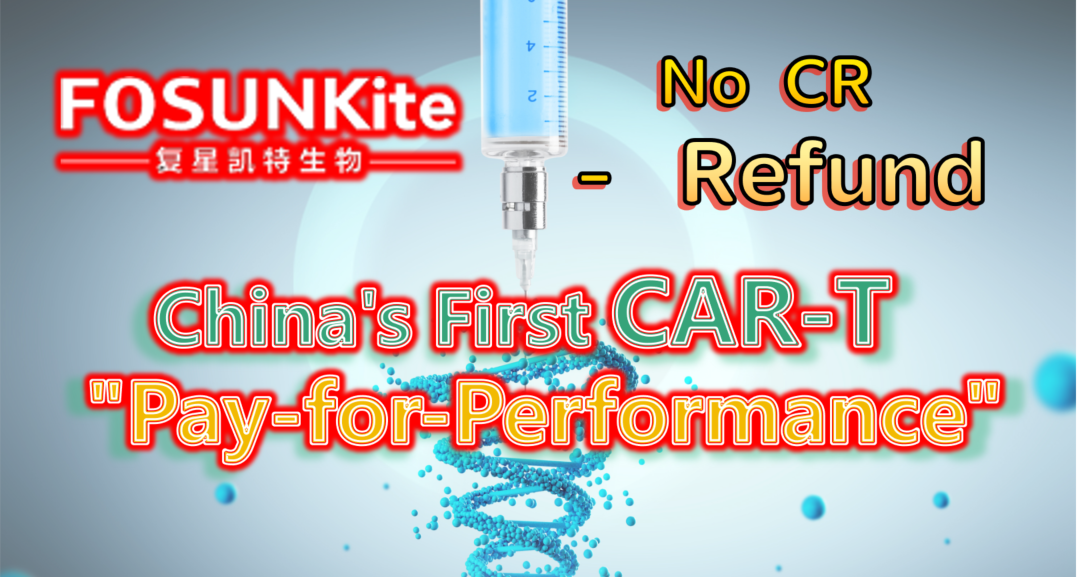
China’s First CAR-T Trial: “Pay-for-Performance” Introduced!
China’s First CAR-T Trial: “Pay-for-Performance” Introduced! 


CAR-T
 China has taken a groundbreaking step towards pay-for-performance! Fosun Kite announces an exciting initiative: the ¥1.2 million(RMB) #CARTcell therapy will now be paid based on its effectiveness!
China has taken a groundbreaking step towards pay-for-performance! Fosun Kite announces an exciting initiative: the ¥1.2 million(RMB) #CARTcell therapy will now be paid based on its effectiveness! 

NO CR – Refund
 This means that eligible patients using Fosun Kite’s #CARTtherapy, #Axicabtagene Ciloleucel, will undergo effectiveness assessment three months after drug purchase and infusion. If complete remission (CR) is not achieved, patients will receive a refund of up to ¥600,000(RMB)!
This means that eligible patients using Fosun Kite’s #CARTtherapy, #Axicabtagene Ciloleucel, will undergo effectiveness assessment three months after drug purchase and infusion. If complete remission (CR) is not achieved, patients will receive a refund of up to ¥600,000(RMB)! 

 This innovative payment model
This innovative payment model
is not only China’s first for lymphoma drugs but also the country’s first for bio-innovative drugs! 

is an immunotherapy method that involves genetically modifying a patient’s T cells outside the body to recognize specific tumor targets before reinfusing them to precisely combat #tumors. Currently, five products, including Fosun Kite’s #AxicabtageneCiloleucel, have been approved domestically. 

As a form of immunotherapy, CAR-T cell therapy works by collecting a patient’s T cells and genetically modifying them outside the body to recognize specific tumor targets. These modified T cells are then reintroduced into the patient, enabling precise targeting and attacking of tumors. Currently, there are five approved products domestically, including Axicabtagene Ciloleucel from Fosun Kite, Relmacabtagene Autoleucel from JW Therapeutics, Equecabtagene Autoleucel from IASO Bio, Inaticabtagene Autoleucel from Juventas, and Zevorcabtagene autoleucel from CARsgen.
New Hope
 Unlike traditional drugs, CAR-T requires individualized production for each patient, thus incurring higher costs. However, this innovative pay-for-performance model brings new hope to patients!
Unlike traditional drugs, CAR-T requires individualized production for each patient, thus incurring higher costs. However, this innovative pay-for-performance model brings new hope to patients! 

“Cure” standards
 Fosun Kite’s project leader stated that they will collaborate with clinical experts, health commissions, treatment demonstration centers, and other stakeholders to establish “Cure” standards, objectively assessing lymphoma efficacy. This will provide reliable evaluation criteria for performance-based payment!
Fosun Kite’s project leader stated that they will collaborate with clinical experts, health commissions, treatment demonstration centers, and other stakeholders to establish “Cure” standards, objectively assessing lymphoma efficacy. This will provide reliable evaluation criteria for performance-based payment! 


 To assess whether the condition is suitable for CAR-T or clinic therapy, you can submit Advanced Medicine in China for preliminary evaluation!
To assess whether the condition is suitable for CAR-T or clinic therapy, you can submit Advanced Medicine in China for preliminary evaluation!
WhatsApp: +8613717959070
Email: doctor.huang@globecancer.com
Warning: Trying to access array offset on value of type bool in /www/wwwroot/www.medtourcn.com/wp-content/themes/medical-directory/framework/theme/medicaldirectory-image.php on line 78
Warning: Trying to access array offset on value of type bool in /www/wwwroot/www.medtourcn.com/wp-content/themes/medical-directory/framework/theme/medicaldirectory-image.php on line 79

Hope For Patients of Gastric Cancer And Pancreatic Cancer – CT041 Typical Cases and Achievements

Gastric Cancer,
Pancreatic Cancer

Gastric Cancer,
Pancreatic Cancer
